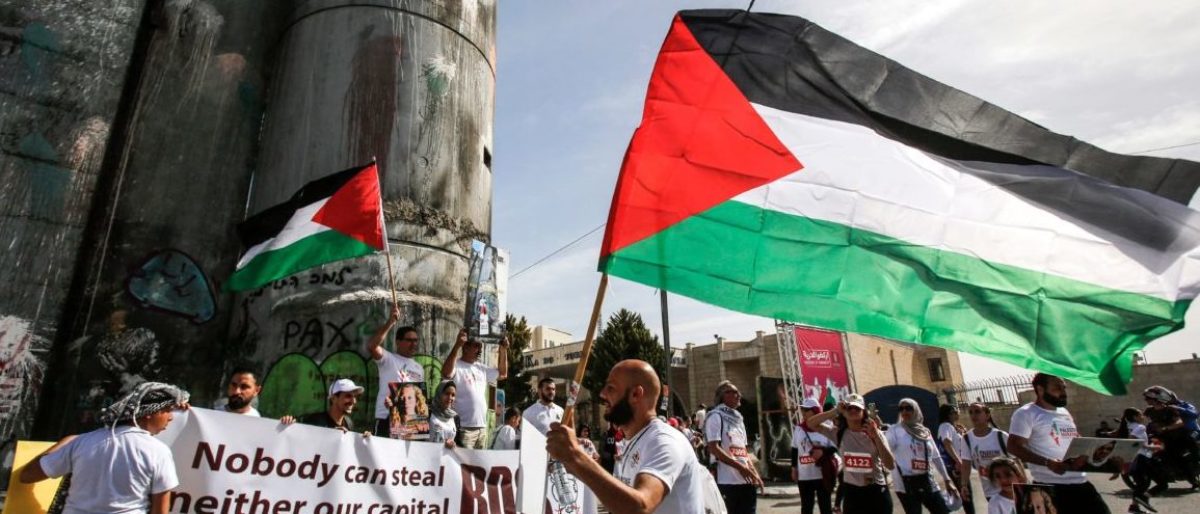United Nations Secretary-General Antonio Guterres spoke of the Israeli-Palestine conflict on the International Day of Solidarity with the Palestinian People, saying “the occupation must end,” according to the Times of Israel.
The annual event, held on Nov. 29, was sponsored by the U.N. General Assembly Committee on the Exercise of the Inalienable Rights of the Palestinian People and was attended by representatives of countries wishing to express support for Palestine and its freedom from Israeli influence. The U.N.’s website says “[t]he International Day of Solidarity provides an opportunity for the international community to focus its attention on the fact that the question of Palestine remains unresolved and that the Palestinian people are yet to attain their inalienable rights as defined by the General Assembly, namely, the right to self-determination, the right to national independence and sovereignty and the right to return.”
“The United Nations’ position is clear — peace must advance, the occupation must end,” said the Chef de cabinet Earle Courtenay Rattray, who delivered the secretary general’s comments at the U.N.’s New York headquarters.
The United States and Israel were not in attendance.
The Daily Caller News Foundation spoke with senior research analyst David May of the Foundation for Defense of Democracies, who said that Guterres’ remarks are just another example of the U.N. putting “their thumb on the scale on the side of the Palestinians.”
“[I]t’s a nice slogan to say that the occupation must end but it ignores two things that are pretty important. One is how we got here and where we go from here,” he said. “Israel made several attempts to negotiate a peace with the Palestinians, all either rejected or ignored them. … This idea [that] Israel should just leave [the Gaza Strip], what happens the day after? We saw what happened in Gaza in 2005 when Israel pulled out and then it turned into a terror launchpad for Hamas.”
The event comes on the heels of an impending decision from the International Court of Justice (ICJ) on a resolution proposed by the United Nations Special Committee on Decolonization. The resolution asked the IJC to rule whether Israel’s “occupation, settlement, and annexation of the Palestinian territory” infringed on the Palestinians’ ability and right to self-determination, according to Reuters.
May argued that the committee’s resolution was “not really coherent.”
“[T]his notion that somehow the length and the duration of Israel’s presence in the West Bank, therefore makes it illegal somehow, is not really coherent,” he stated. “Especially when you go back to the fact that the Palestinians are the ones who have perpetuated and refused to come to any resolution on this.”
Guterres said Tuesday he was “deeply saddened” by the growing violence in the West Bank of Gaza and Eastern Jerusalem.

A participant waves a Palestinian flag while running along Israel’s controversial separation barrier, which divides the West Bank from Jerusalem, in the biblical town of Bethlehem during the 6th International Palestine Marathon on March 23, 2018. / AFP PHOTO / Musa AL SHAER
The West Bank is a part of the disputed territory at the heart of the Israeli-Palestine conflict and the U.N.’s decolonization committee’s resolution.
“[A] lot of the Palestinians that are being mourned for having been killed by Israel, were killed in the course of attacking Israelis,” May explained. “So in terms of mourning their deaths, the United Nations and different representatives in the United Nations are mourning people who are actively seeking to kill Israelis.”
A spokesperson for the Secretary-General, however, told DCNF, “the entire point is that this is set aside by the U.N. General Assembly for the Palestinians. But we’ve spoken out against the violence that has been inflicted on the Israelis the many times and the Secretary General, if you look at speeches over the course of the year, has repeatedly weighted against against the violence that has happened to Israeli civilians as well.”
May said the International Day of Solidarity with the Palestinian People erases an important marker in history.
“[T]he very selection of the day, Nov. 29, being the anniversary of the 1947 partition plan, as a day for solidarity with the Palestinian people is also indicative of erasing Palestinian agency in this conflict. Had the Palestinian leadership agreed to the Partition Plan, then 80 plus years of bloodshed would have been avoided, but they didn’t,” he stated.
No comments:
Post a Comment